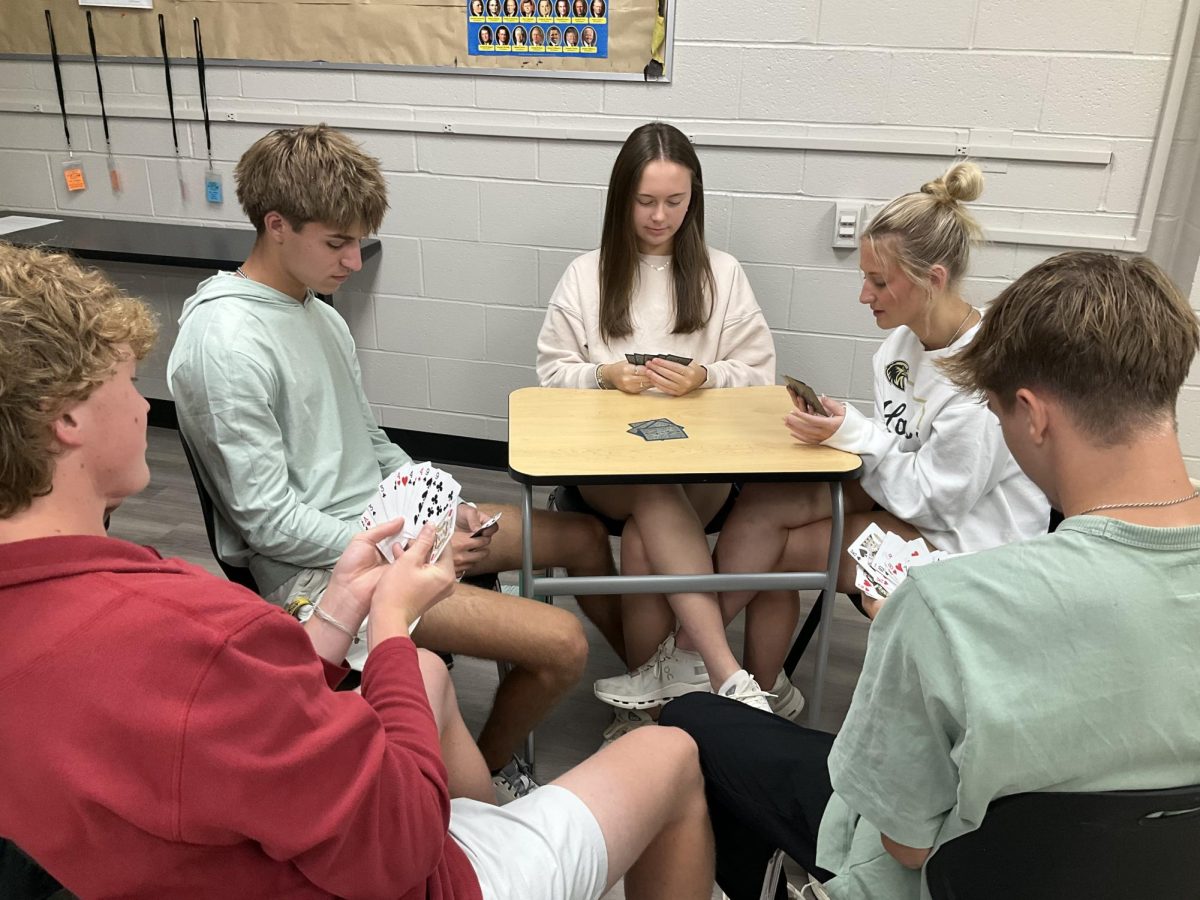When junior Jaeda Archer walked into class on the first day of school, instead of texting her friends to see what class they had first period, she was powering off her phone and putting it in her backpack.
“Walking into school without my phone kind of felt weird and unnatural,” Jaeda said, “I wish I could listen to music at least.”
Because phones emulate the same magnetic pull that a big red button screaming “DO NOT PRESS” would, administrators came up with their own solutions to enforce the phone ban. If a student is caught with their phone during school hours, they are required to do one hour of community service.
“If your phone is taken, then the assistant principals reach out to your parent to let them know that we’ve collected the phone,” high school principal Natalie Reeves said. “Right now we offer community service Monday through Friday, two hours after school, and then a one hour time frame in the morning, before school starts.”
Even though this sounds like a simple and logical repercussion, a lot of thought went into this. It was not an easy task and multiple people were a part of making this decision.
“In some of the other school districts they had published a plan that they are charging money, and so that was a part of our plan,” superintendent Chad Pirtle said. “And I will tell you, our prices were a little bit steeper than everybody else’s prices, because if it doesn’t hurt enough, it’s not going to be a deterrent.”
After finalizing their plan and making sure everything was ready to send out, Mr. Pirtle got a call that stilled the momentum of their ban plan. The caller asked if charging students in order to get their phones back was something they were even allowed to do.
“All of this information is coming out from Austin, and we’re kind of building the plane as we’re flying it, because they make decisions down there that take some time to get to the school districts,” Mr. Pirtle said. “Meanwhile, school is starting, and we have some decisions to be made.”
Mr. Pirtle said that after talking with the Texas Association of School Board attorneys and State Representative Gary VanDeaver, he and his team came up with the plan to require community service hours for every offense.
“So we threw the idea out to our directors and our principals and everyone agreed that was the best idea.” Mr. Pirtle said. “You know, there are good community service things and there are not good community service things, but this is just one more way we can make our school better.”
Even though all the kinks were worked out with the consequences of having phones in school, the cons outweigh the pros for many students. Due to the restrictions on the chromebooks, multiple students are at a stand still with their school work.
“I thought it was super inconvenient and not really a great change,” senior Tucker Keeney said. “I need to be able to do things on my phone because the Chromebooks have Blocksi now, so I can’t even access most of my work. Literally, Texarkana College was blocked for me yesterday, how am I supposed to do my work? I don’t know, and neither do they.”
While these slight problems are inconveniencing some students, administrators are doing everything they can to ensure high levels of learning for all students. From working around Blocksi mistakes, to allowing students to use teacher’s classroom phones, school is going as smoothly as they hoped it would.
“Honestly, I expected Pleasant Grove to roll with the punches,” Mr. Pirtle said. “I was like, we’ll be fine, we’ll roll with it, our students will jump on board.”


